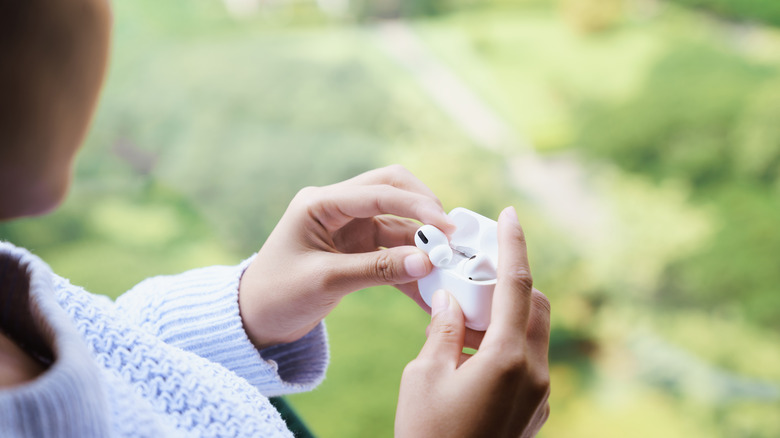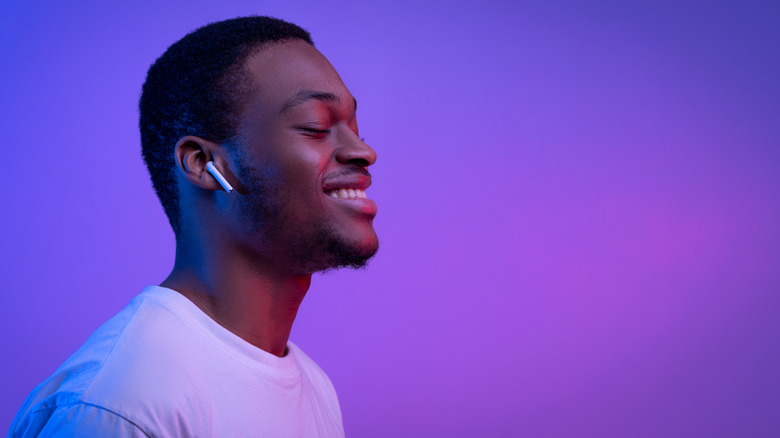Study Finds How AirPods Can Benefit Those With A Hearing Impairment
According to the National Institute on Deafness and Other Communication Disorders (NIDCD), more than 37 million adults in the U.S. report that their hearing is impaired. Additionally, nearly 29 million could experience an improvement in hearing through the use of hearing aids. Unfortunately, hearing impairment can be caused by a work hazard, and 18% of employees who work in environments with a lot of noise report difficulty hearing in as little as five years on the job. Yet, Hearing Loss Magazine (HLM) says a stigma remains around hearing loss in the U.S., causing people to hide, ignore, or make excuses for missing audio cues or misunderstanding conversations.
Unfortunately untreated hearing loss has many health consequences. It can even impact one's social and work life if others unknowingly interpret someone's inability to hear as them being aloof. Additional health impacts can include depression and can even drastically increase one's risk of falls, per Johns Hopkins Medicine. Still, Healthline says the social stigma around hearing loss can cause people to avoid wearing bulky hearing aids. But researchers of a new study set out to determine whether or not AirPods could enhance hearing without the need for traditional hearing aids when it came to mild and moderate hearing loss.
Apple AirPods Pro helped mild to moderate hearing loss
The study, published in iScience, found that the complicated and time-consuming process, high cost ($3,000 – $6,000), and limited insurance coverage of conventional prescription hearing aids were major barriers for those who needed them. Personal sound amplification products (PSAPs) like Apple AirPods are rather ubiquitous in our modern culture and, somewhat surprisingly, far less expensive. The study concluded that AirPods Pro met formal criteria for PSAP standards and were similarly as effective when compared to traditional hearing aids. However, the type of AirPods used does matter and researchers found AirPods 2 did not fit the bill.
Co-author of the study Yen-Fu Cheng, an ear, nose and throat specialist at Taipei Veterans General Hospital in Taiwan, says, "They won't replace hearing aids but it's a good way for people to experience what the world would be like if they could get some help, an upgrade for their hearing." However, the study only involved 21 subjects, did not include those with severe hearing loss, was conducted in a laboratory rather than a real-world environment, and only tested Apple AirPods products, so more research is needed (per Healthline).


